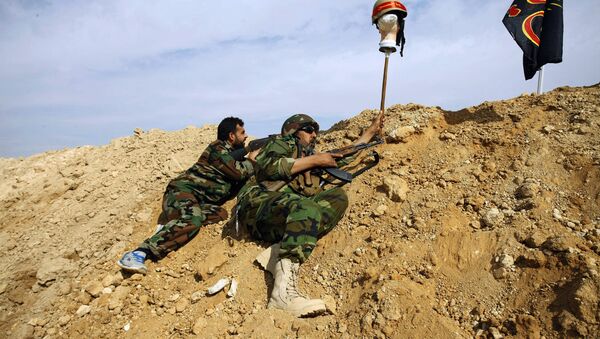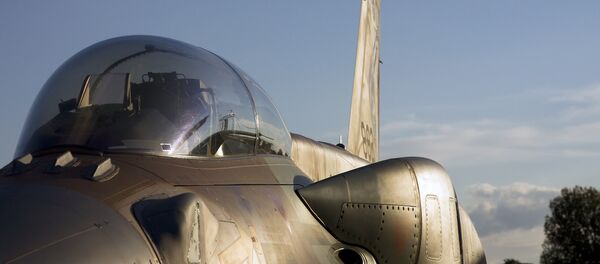According to Koren, the agreement on the establishment of the southern de-escalation zone envisages withdrawal of Shiite groups.
"We know the contents of this agreement very well, and we are being consulted with, including in Moscow and we will hope for the swiftest implementation of the agreements. I would rather not get into details, but I can confirm that this issue was touched upon on the high governmental level, and on the working [level] … Any cooperation with the international community including Russia and the United States, which could lead to withdrawal of Shia and Iranian forces from Syria, is important for us," he said.
Koren added that Iran's attempts to deploy units of Islamic Revolutionary Guard Corps (IRGC) to the Israel-Syria border would lead to dangerous aggravation of the situation in southern de-escalation zone in Syria.
READ MORE: Syrian Army Troops Enter Damascus' Al-Qadam After Militants Evacuated to Idlib
"I am talking specifically about the situation in this zone, when there were firings and projectiles 'accidentally' hit Israeli territory. Of course, we will never allow this. And when there were attempts to place units subordinated to IRGC or Hezbollah literally to our border. We will not tolerate this as well. These allegedly tactical steps by our opponents can lead to a dangerous strategic escalation," the ambassador stressed.
Israel does not intend to interfere in the situation in Syria, but will properly respond to the subversive activities of Iran, according to Koren.
Tehran has been backing Damascus in its struggle against terrorist groups in the course of the deadly conflict that broke out in 2011. Within the framework of Iran's support, Tehran has sent military advisers to train troops loyal to Damascus.
Israel, however, viewed Iranian activities as a threat to national security and repeatedly claimed that Tehran was building a permanent military base south of country's capital of Damascus, a claim repeatedly denounced by the Islamic Republic as groundless.
February was marked by a major escalation in the conflict between Israel and Iran in Syria. On February 10, the Israeli army said its helicopter intercepted an Iranian drone launched from Syria and that the Israeli Air Force (IAF) struck Iranian targets in Syria. The Israeli moves prompted a retaliatory fire, resulting in an Israeli F-16 fighter jet being hit. In the second wave of the attack, the Israeli forces struck 12 targets in Syria, including Syrian air defense batteries and Iranian military facilities, the country's Defense Forces (IDF) said.
Amid the mounting tensions, Israeli Prime Minister Benjamin Netanyahu said that Israel would further act to prevent Iran from establishing permanent presence in Syria.



